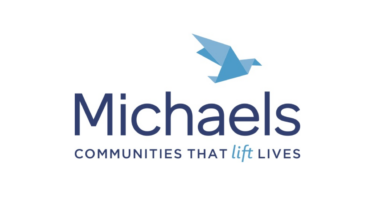From pioneering affordable housing programs in the early 1970s to managing a current $5.1 billion development pipeline, The Michaels Organization has established itself as a force in the aff...
Home Equity's New Frontier: Unison's Alternative to Traditional Financing




With U.S. homeowners sitting on over $35 trillion in home equity and reluctant to refinance their low-rate mortgages, innovative financing solutions are finding their moment. Leading this shift is Unison, which has developed products that let homeowners access their equity without taking on traditional debt.
“Most homeowners can’t easily access their equity without taking on new debt,” says Matthew O’Hara, Chief Investment Officer at Unison. “With most people holding 3-4% first mortgages, they don’t want to refinance at 7% to get cash out – it’s just inefficient.”
At the helm of this financial innovation is O’Hara, who brings Wall Street-grade quantitative rigor to residential real estate. As Unison’s Chief Investment Officer, he’s introduced institutional-caliber analytics to a sector that too often still relies on gut feel and market intuition. His team deploys sophisticated forecasting models and portfolio optimization tools more commonly found in global asset management firms, bringing mathematical precision to housing market investment decisions.
Unison’s flagship product, the equity sharing agreement, provides homeowners with upfront cash in exchange for a share of their home’s future value changes, eliminating monthly payments and interest charges. If the home appreciates, Unison shares in the gain; if it decreases, they share in the loss.
Building on this foundation, the company recently introduced an equity sharing home loan that blends traditional mortgage elements with appreciation sharing. “Instead of being just appreciation only, it’s somewhere in between,” O’Hara explains. “The homeowner pays some amount but less than traditional rates, while giving up some future appreciation rights.” This hybrid approach enables Unison to offer lower interest rates than conventional second mortgages.
The company has gained significant traction, managing over $8.8 billion in home value across approximately 10,000 active contracts. Their institutional investors, primarily pension funds, value the uncorrelated returns of residential real estate appreciation without the complexity of direct property management. The growing interest in private credit has further accelerated institutional appetite for these structured products that combine mortgage characteristics with home price appreciation exposure.
Looking toward 2025, O’Hara sees a stabilizing market despite higher rates. “Homeowners and home buyers are essentially coming to equilibrium,” he notes. “Mortgage rates starting with a six is where we’re going to be.” This environment makes Unison’s approach particularly relevant as homeowners seek smart alternatives to traditional financing.
The company’s priorities include expanding their equity sharing home loan portfolio and developing new product variations. “We want to continue to focus on our portfolio management capabilities and be consistent issuers in the capital markets,” O’Hara notes. With home sales beginning to rebound as buyers adjust to the new rate environment, Unison is positioned to help homeowners navigate this evolving landscape.
Similar Articles
Explore similar articles from Our Team of Experts.


When Nancy Batchelor arrived in Miami in 1982, the city was a far cry from today’s global luxury destination. Ocean Drive featured rocking chairs instead of five-star hotels, and the i...


Zina Raslan, a residential real estate agent with Compass’s Gambino Group, brings a fresh perspective to New York City’s real estate market. Having started her career with Compas...


“In the residential real estate industry, as a broker owner, when you want to sell, you can’t tell anybody. The second you do, rumors start, and your competitors hear about it. I...


Cold plunges and infrared saunas. Recovery tech lounges and tranquility rooms. Wine vaults hidden within private conference spaces. This isn’t a luxury spa or wellness retreat – it’s T...




